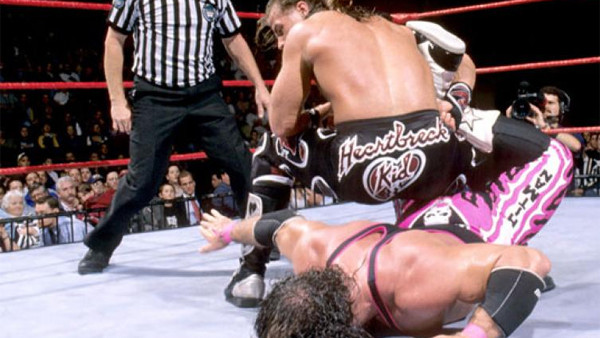9 Worst Abuses Of Creative Control In Wrestling
What if we did it this way instead?

The biggest wrestlers generally command the biggest contracts, and that doesn't just mean generous financial incentives. In some cases, it also means being permitted the ability to exert control over the creative direction of their character.
Having so dramatically burnt his bridges with WWE in the late '90s, Bret Hart famously asked for creative privileges when he sat across the negotiating table from Eric Bischoff - a request the WCW head honcho could hardly refuse having let Hulk Hogan pull the strings for much of the last three years.
Creative control is, ostensibly, less prevalent in today's wrestling world - although there are murmurs every now and then that one or two of the biggest WWE stars (John Cena, for instance) are able to have a quiet word in the booker's ear if they are pitched something they aren't so keen on.
And, honestly, it's not always bad, since wrestlers often have their finger more firmly on the pulse than those behind the scenes. Sometimes they use their swing to lobby for things that are worthwhile.
But, truthfully: a lot of the time they don't.
9. Shawn Michaels At One Night Only 1997
Shawn Michaels was - allegedly - guilty of flexing his creative muscles twice in the run up to his European Title match with The British Bulldog at Birmingham's One Night Only in September 1997.
First, it was reportedly the 'Heartbreak Kid's lobbying that saw his match - a secondary title bout, albeit one featuring the home-country hero - get the main event billing, ahead of Bret Hart's WWF Championship defence against The Undertaker (which, no Brits or not, was perhaps still the bigger pay-per-view draw).
Despite, according to reports, being assured he would win, Bulldog then suffered the indignity of a loss on his home turf after Michaels apparently refused to do the job. A little childish, true, but try and find a better heel performance anywhere this side of 2000.